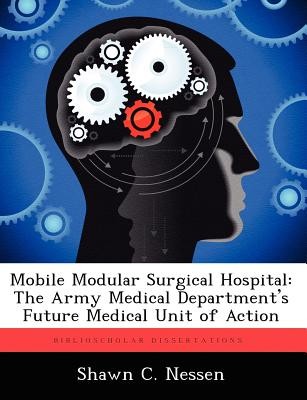
- We will send in 10–14 business days.
- Author: Shawn C Nessen
- Publisher: BiblioScholar
- ISBN-10: 124928306X
- ISBN-13: 9781249283065
- Format: 18.9 x 24.6 x 0.6 cm, softcover
- Language: English
- SAVE -10% with code: EXTRA
Reviews
Description
The United States Army is rapidly becoming a modular, highly mobile force based on specific capabilities. The Army Medical Department (AMEDD) has tried to adapt the combat support hospital to support the "unit of action" concept. Based on Operation Iraqi Freedom, the combat support hospital does not appear to provide the mobility or modularity required to support the evolving force structure designed around modular concepts and the brigade combat teams. Early during Operation Iraqi Freedom, the combat support hospitals fell behind the forces they were tasked to support and none were established near Baghdad until after its fall. By contrast, the 212th MASH was able to support the war because of its 100 percent mobility. The AMEDD needs to develop a modular hospital possessing the capability to support UEx (Division/Corps) combat operations with a base capability of an appropriate size to support stability operations. Modularity can be achieved by re-organizing the professional filler system into medical detachments for all medical and nursing capabilities. Medical detachments would centralize AMEDD control of deployments, and allow the medical unit of action commanders the flexibility they require to plan for varied missions without the burden of split-based operations.
EXTRA 10 % discount with code: EXTRA
The promotion ends in 19d.15:48:10
The discount code is valid when purchasing from 10 €. Discounts do not stack.
- Author: Shawn C Nessen
- Publisher: BiblioScholar
- ISBN-10: 124928306X
- ISBN-13: 9781249283065
- Format: 18.9 x 24.6 x 0.6 cm, softcover
- Language: English English
The United States Army is rapidly becoming a modular, highly mobile force based on specific capabilities. The Army Medical Department (AMEDD) has tried to adapt the combat support hospital to support the "unit of action" concept. Based on Operation Iraqi Freedom, the combat support hospital does not appear to provide the mobility or modularity required to support the evolving force structure designed around modular concepts and the brigade combat teams. Early during Operation Iraqi Freedom, the combat support hospitals fell behind the forces they were tasked to support and none were established near Baghdad until after its fall. By contrast, the 212th MASH was able to support the war because of its 100 percent mobility. The AMEDD needs to develop a modular hospital possessing the capability to support UEx (Division/Corps) combat operations with a base capability of an appropriate size to support stability operations. Modularity can be achieved by re-organizing the professional filler system into medical detachments for all medical and nursing capabilities. Medical detachments would centralize AMEDD control of deployments, and allow the medical unit of action commanders the flexibility they require to plan for varied missions without the burden of split-based operations.


Reviews